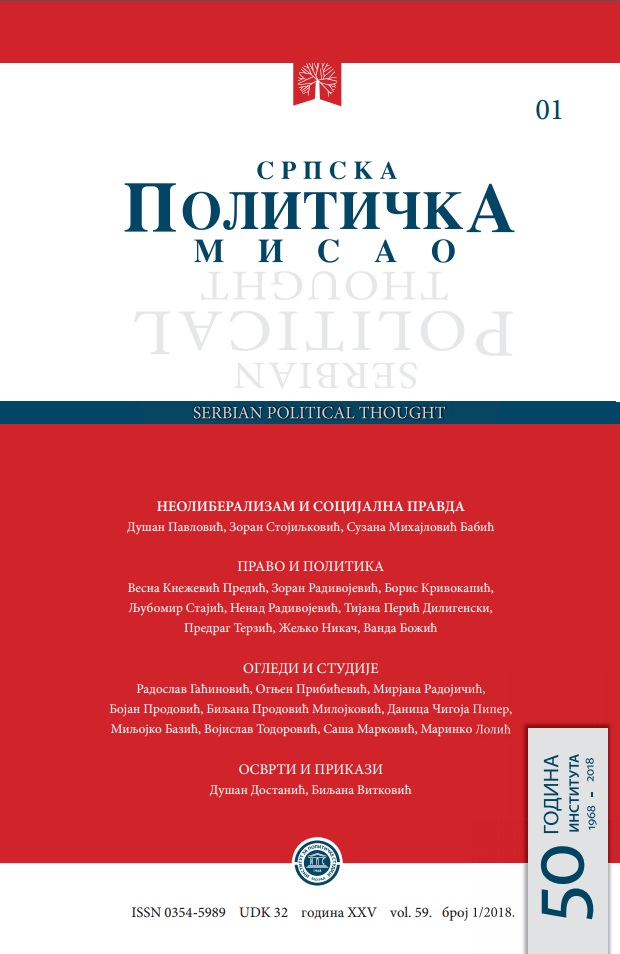Политике активације у функцији неолиберализације оцијалних права у Европи након економске кризе
Activation Policies in Function of Neoliberalisation of Social Rights in Europe after the Economic Crisis
Author(s): Suzana Mihajlović BabićSubject(s): Economic history, Welfare systems, Transformation Period (1990 - 2010), Socio-Economic Research
Published by: Институт за политичке студије
Keywords: activation policies; economic crisis; minimum income support programs
Summary/Abstract: Since the 1990s there has been an increase in the share of active labour market policies comparing to passive social security benefits in the case of unemployment. Тhis trend has been recorded across all European states that have restructured social rights in various ways, but this restructuring have had in common linkage between the right to unemployment benefits with minimum income support programs in the recent years. he tradition of activation policy from the United Kingdom implied strong focus on inclusion effectiveness in the labour market, using activation measures such as reducing of unemployment benefits and increase of benefits conditionality, as well as job counseling. After the economic crisis in 2008, the same political response was observed, with program reforms conducted in order to link unemployment benefits to compulsory participation in activation measures and to make them part of the minimum income support scheme. In Germany, employment subsidies, job creation and practices were recorded, along with the abovementioned active measures. The beginning of the economic crisis in 2008 brings unclear differentiation between contributory and non-contributory social rights in Germany, therefore these programs for unemployed are now non-contributory programs financed from taxes, while classical social assistance is granted only to people who are incapable of work. Benefits from programs are conditioned by participation in activation measures and contain various sanctions in case of violation. The same is recorded in Denmark, whose system was reformed towards division of rights for unemployed who have paid their contributions and those who did not. Those who are not insured have access to social assistance that is directly related to activation measures, with a different sanction for noncompliance - reduction or cancellation of monetary compensation. States responded to the crisis in accordance with institutional assumptions that ensured continuity in their policies, while on the other side, incoherences included change from traditional to neoliberal response patterns in labour market policies in all observed countries.
Journal: Српска политичка мисао
- Issue Year: 2018
- Issue No: 1
- Page Range: 59-73
- Page Count: 15
- Language: Serbian

